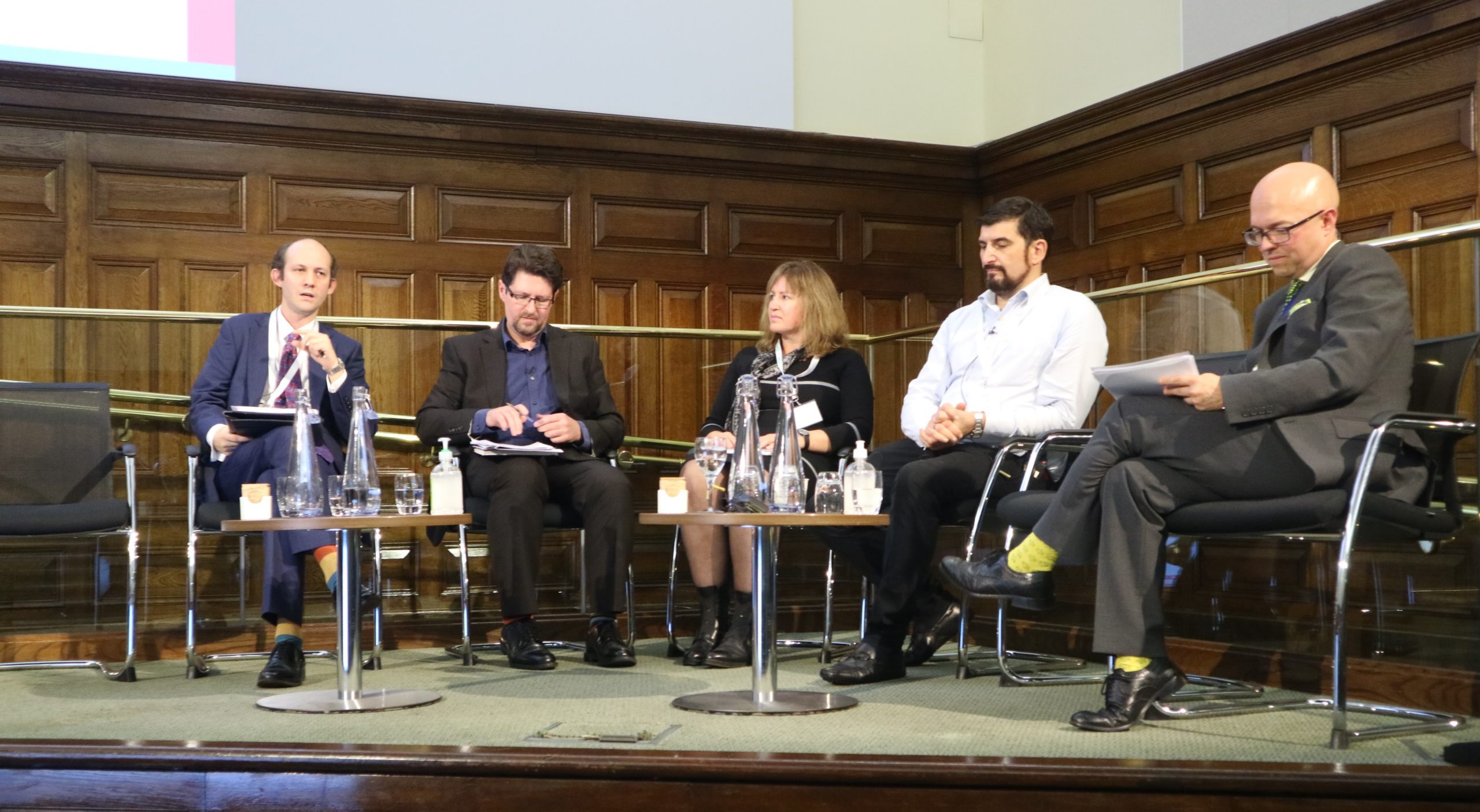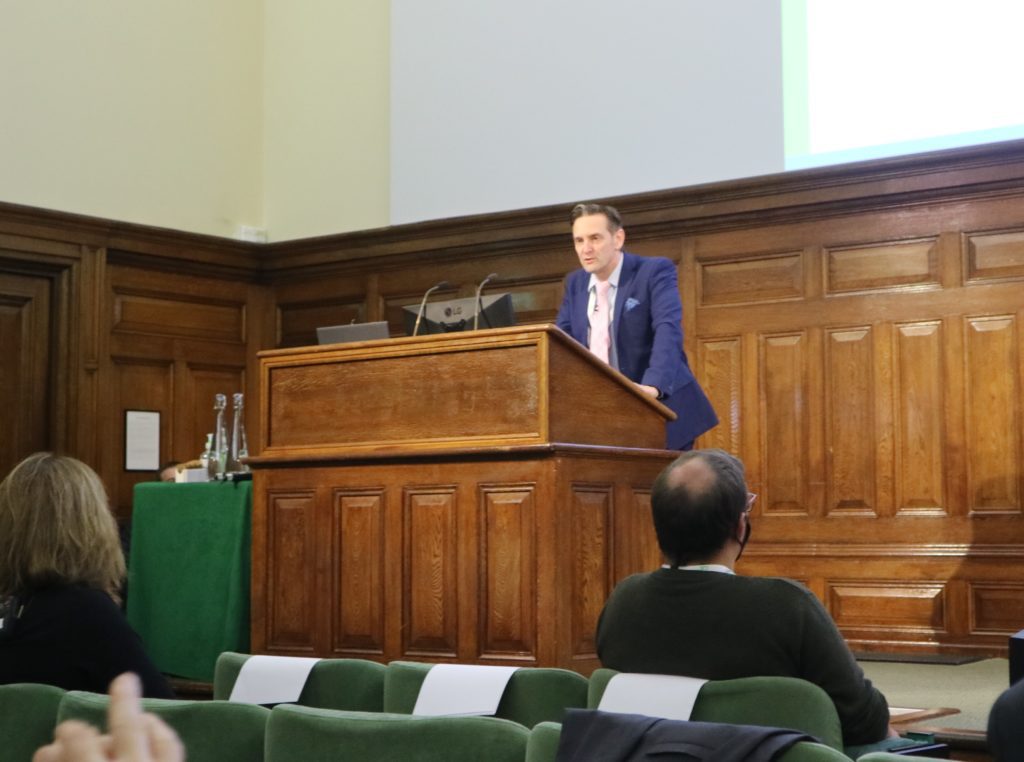Earlier this week (19 October), the government published its Net Zero Plan, which said £295 million in funding would be available to all English councils to prepare for the implementation of free separate food collections for all households “from 2025” (see letsrecycle.com story).
Under plans proposed in the recent consultations on the Resources and Waste Strategy, separate mandatory food waste collections by councils are expected by 2023.
Responding to a question yesterday (20 October) as to whether news of the funding would see the policy deferred, Chris Preston said: “There’ll be funding available from 2025. We’re still waiting for our responses to the consultations.”
Mr Preston was appearing at the Resourcing the Future conference in London. He said that key reforms in the waste sector, such as the implementation of extended producer responsibility (EPR) for packaging, a deposit return scheme (DRS), and consistency in collections, would be “up and running by 2026”.
One sector expert suggested to letsecycle.com that this could see the implementation of the first phase of EPR delayed to the second quarter of 2024, to coincide with the start of the financial year.
Consultations
Previously, at the RWM trade show in Birmingham on 22 September, Mr Preston said Defra would publish its responses to the consultations on EPR, the DRS, and consistency “later this year or early next” (see letsrecycle.com story).
We’ve consulted, now we need to move into the delivery phase– Chris Preston, deputy director for resources and waste at Defra
Today, he said: “We’re still in the throes of analysing what you said to us in those consultations.”
However, Mr Preston suggested work on the policies contained within the Resources and Waste Strategy was progressing, with Defra now looking at setting long-term targets for waste.
“We’ve consulted, now we need to move into the delivery phase,” he said. “Delivery is going to be challenging but achievable.”
He also said consultations on waste tracking, waste electrical and electronic equipment (WEEE), and batteries were to launch this year.
Food waste collections
Also speaking at the conference was Emma Beal, managing director of the West London Waste Authority (WLWA) and chair of the National Association of Waste Disposal Officers (NAWDO).

She suggested that, with a raft of reforms to come, the most significant for local authorities was the introduction of mandatory food waste collections. She called for greater investment in the infrastructure needed to manage food waste.
She said: “If we don’t have the infrastructure, it doesn’t really matter what we collect. It will be going in the wrong place.”
Ms Beal called for everyone in the waste sector, from local authorities to policymakers to private firms, to work together and talk to each other about “the reality of this situation” to help achieve the proposed reforms.
She said: “What we need is a very clear and agreed set of key messages. What’s the most important thing that each group can do now? And it’s not the same thing.”
Ms Beal said implementing some of the reforms felt like “a leap of faith” and would prove difficult for local authorities but acknowledged “steps need to be taken”.
Explaining how the sector would know if the reforms to improve waste management had worked once they are implemented, she said: “Keep your eyes on what’s left in waste, because that’s how we know if we’re being successful.”
Reforms
Ms Beal appeared on a panel alongside Jacob Hayler, executive director of the Environmental Services Association (ESA), Paul Vanston, chief executive of INCPEN, Professor Nick Voulvoulis from Imperial College London, and Dr Adam Read, president of the Chartered Institution of Wastes Management (CIWM).
The next five years isn’t going to be enough to achieve transformation, that’s the period of transition– Jacob Hayler, executive director of the ESA
Mr Hayler welcomed the raft of proposed reforms but sought to temper expectations about the pace of change.
He said: “The next five years isn’t going to be enough to achieve transformation, that’s the period of transition.”
Mr Hayler suggested alignment of each proposed reform was “challenging”. “There is a danger and a risk we’re trying to do too many things at once.”
He suggested consistency in collections should be introduced soon, to see the “uplift” it provided, alongside EPR for packaging, which would see councils receive much-needed revenue.
Other reforms such as the DRS should wait, he said, to see whether they were still needed.
He too called for greater investment, in end markets and infrastructure. “We’re worried that you can’t just flick the policy switch and expect a huge wave of investment in our sector to come crashing in.”












Subscribe for free